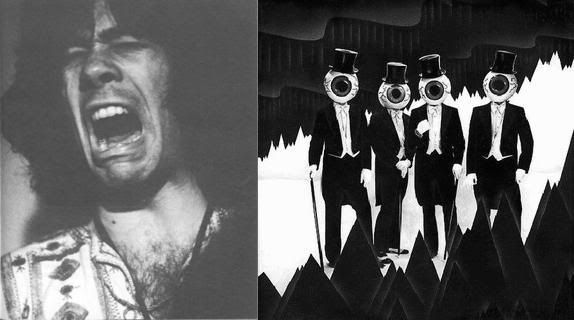/PAlogo_v2.gif) |
|
Post Reply 
|
Page <1 2021222324> |
| Author | ||||||||||
micky 
Special Collaborator 

Honorary Collaborator Joined: October 02 2005 Location: . Status: Offline Points: 46838 |
 Posted: March 22 2009 at 20:05 Posted: March 22 2009 at 20:05 |
|||||||||
|
I live for hidden posts... just another on my untouchable record....
Edited by micky - March 22 2009 at 20:06 |
||||||||||
|
The Pedro and Micky Experience - When one no longer requires psychotropics to trip
|
||||||||||
 |
||||||||||
Ivan_Melgar_M 
Special Collaborator 
Honorary Collaborator Joined: April 27 2004 Location: Peru Status: Offline Points: 19557 |
 Posted: March 23 2009 at 23:11 Posted: March 23 2009 at 23:11 |
|||||||||
I don't see it like that Jean.
They talk ogf men and women, in which homosexuals are included and about marriage.
Being that they can't decide the indivual countries laws, in the nations where homosexual marriage is accepted it's protected, and in the ones that don't accept it not.
Iván
|
||||||||||

|
||||||||||
 |
||||||||||
InvisibleUnicorns 
Forum Senior Member 
Joined: March 18 2009 Status: Offline Points: 130 |
 Posted: March 23 2009 at 23:17 Posted: March 23 2009 at 23:17 |
|||||||||
|
So it lets member countries decide whether or not to follow all the articles? That sorta defeats the purpose, doesn't it?
|
||||||||||
 |
||||||||||
Ivan_Melgar_M 
Special Collaborator 
Honorary Collaborator Joined: April 27 2004 Location: Peru Status: Offline Points: 19557 |
 Posted: March 23 2009 at 23:58 Posted: March 23 2009 at 23:58 |
|||||||||
The signing countries follow the articles, but an International convention can't define (and doesn't do it) what is marriage for each country, for some nations it's exclusively the union of man and woman, for others the union of people from the same sex is called marriage.
If the Convention defined Homosexual marriages, the signing countries should accept it, but the document doesn't define it, so each nation is free to define the institution of marriage.
Iván
|
||||||||||

|
||||||||||
 |
||||||||||
InvisibleUnicorns 
Forum Senior Member 
Joined: March 18 2009 Status: Offline Points: 130 |
 Posted: March 24 2009 at 00:49 Posted: March 24 2009 at 00:49 |
|||||||||
|
Any governmental institution of marriage that excludes homosexuals violates article 3 pretty explicitly.
Edited by InvisibleUnicorns - March 24 2009 at 00:49 |
||||||||||
 |
||||||||||
Petrovsk Mizinski 
Prog Reviewer 

Joined: December 24 2007 Location: Ukraine Status: Offline Points: 25210 |
 Posted: March 24 2009 at 01:36 Posted: March 24 2009 at 01:36 |
|||||||||
|
||||||||||

|
||||||||||
 |
||||||||||
debrewguy 
Special Collaborator 
Honorary Collaborator Joined: April 30 2007 Location: Canada Status: Offline Points: 3596 |
 Posted: March 24 2009 at 09:26 Posted: March 24 2009 at 09:26 |
|||||||||
|
Human Rights are a great thing.
Often used by authoritarian regimes to tell others to butt out because their values don't match ours. Or by international agencies who too often find it easier to condemn western democracies in their public pronouncements, because frankly their influence is extremely limited on nations like China, eh ... I believe in these rights, I believe that they are rarely achieved or attained 100%. I also believe that responsibilities should be added to indicate that this utopia is a social contract, not a one way deal. But until the majority of business dealings are affected negatively by countries that disregard even the most basic rights, NOTHING will really happen. Yes, that's right, until money is lost by these nations, the pressure to change is non-existent. Ask Sudan , China, Burma , Saudi Arabia ... |
||||||||||
|
"Here I am talking to some of the smartest people in the world and I didn't even notice,” Lieutenant Columbo, episode The Bye-Bye Sky-High I.Q. Murder Case.
|
||||||||||
 |
||||||||||
Ivan_Melgar_M 
Special Collaborator 
Honorary Collaborator Joined: April 27 2004 Location: Peru Status: Offline Points: 19557 |
 Posted: March 24 2009 at 10:53 Posted: March 24 2009 at 10:53 |
|||||||||
Please, tell me in which way does right to life, liberty and seccurity is related to homosexual marriage? I'm a lawyer for more than 20 years and find absolutely no connection, being that they are talking of PERSONASL SECURITY, related more with the preservation of physical life in regimens where they kill or torture people.
Just remember that this document was proclaimed in 1948 if I'm not wrong, so hardly they were thinking in homosexual rights.
It has to be modified, but if they include the homosexual marriage as mandatory, many countries would split.
Iván
|
||||||||||

|
||||||||||
 |
||||||||||
InvisibleUnicorns 
Forum Senior Member 
Joined: March 18 2009 Status: Offline Points: 130 |
 Posted: March 24 2009 at 11:29 Posted: March 24 2009 at 11:29 |
|||||||||
|
A governmental institution of marriage that excludes homosexuals violates the right to liberty. The government is setting up a system where one group of people has the liberty to do something, whereas another group does not. They are quite clearly violating the liberty of homosexuals by doing so. It also violates article 1's claim that "All human beings are born free and equal in dignity and rights." And it violates article 7, for that matter: "All are entitled to equal protection against any discrimination in
violation of this Declaration and against any incitement to such
discrimination."
And if changing that meant that many countries would split, so what? If they don't want to protect human rights, f**k them. It seems to me that the whole point of the document you posted is to ensure that member countries will protect human rights. So why should the writers of the document compromise it's definition of human rights for the sake of having more countries accept it? Edited by InvisibleUnicorns - March 24 2009 at 11:31 |
||||||||||
 |
||||||||||
Ivan_Melgar_M 
Special Collaborator 
Honorary Collaborator Joined: April 27 2004 Location: Peru Status: Offline Points: 19557 |
 Posted: March 24 2009 at 12:00 Posted: March 24 2009 at 12:00 |
|||||||||
Edited by Ivan_Melgar_M - March 24 2009 at 12:03 |
||||||||||

|
||||||||||
 |
||||||||||
stonebeard 
Forum Senior Member 

Joined: May 27 2005 Location: NE Indiana Status: Offline Points: 28057 |
 Posted: March 24 2009 at 13:10 Posted: March 24 2009 at 13:10 |
|||||||||
|
Marriage is an unnatural institution, therefore, (by common sense, mind you--I'm not a Constitutional expert or very familiar with the Human Rights document) it doesn't seem to be an unalienable right--a right of birth--unless I misunderstand the loaded language there. However, I think it's pretty obvious that if heterosexual marriage is allowed,
homosexual marriage cannot be denied without violating the liberty of
homosexuals. In this matter, it doesn't matter how many countries disagree, that doesn't make disallowing heterosexual marriage right. In fact, it's bordering on uncivilized.
Speaking of uncivilized, how about that Pope's trip to Africa? |
||||||||||
 |
||||||||||
Slartibartfast 
Collaborator 

Honorary Collaborator / In Memoriam Joined: April 29 2006 Location: Atlantais Status: Offline Points: 29630 |
 Posted: March 24 2009 at 13:31 Posted: March 24 2009 at 13:31 |
|||||||||
I could post some cartoons that would offend certain people...  |
||||||||||
|
Released date are often when it it impacted you but recorded dates are when it really happened...

|
||||||||||
 |
||||||||||
InvisibleUnicorns 
Forum Senior Member 
Joined: March 18 2009 Status: Offline Points: 130 |
 Posted: March 24 2009 at 14:05 Posted: March 24 2009 at 14:05 |
|||||||||
|
Well I just lost my entire response to Ivan's post, so here are my main points:
Article 3 of the treaty EXPLICITLY states that everyone has a right to liberty, and article 1 of the treaty EXPLICTLY states that everyone has the same rights as everyone else. Any government institution of marriage that excludes homosexuals but not heterosexuals violates the liberty of homosexuals while promoting the liberty of heterosexuals, because the government applies to all citizens, homosexual and heterosexual alike. As such, any such government institution of marriage violates what is EXPLICITLY written. I am not trying to change the document at all. On the contrary, I am arguing using only what you provided. Everything I am saying is a logical consequence of what is written in that treaty. Every country that ratified that treaty accepted the terms of it. If they didn't understand the ramifications of it, tough luck. If they have an institution of marriage that excludes homosexuals, they are in direct violation of articles 1 and 3 from what you posted. If they want to preserve such institutions of marriage, then it seems to me that they have two options: 1) pull out from the treaty 2) start a push to redefine the treaty such that it explicitly states the homosexuals do not have the same right to liberty as heterosexuals As for your point about the treaty being written in 1948, it's not my fault that the people of the treaty did not realize the ramifications of what they wrote. The words they wrote give every single person the right to liberty, regardless of sexual orientation. If they did not mean that, they should've written otherwise. Personally, I think marriage shouldn't be a government institution at all, but merely a religious one (in which case homosexual exclusion would be perfectly legitimate, even if I disagree with it on a personal level). However, in the US and other countries, it IS a government institution, and as such it must comply with the treaty. So long as it excludes homosexuals, it does not comply with articles 1 and 3 of the treaty AS THEY ARE WRITTEN. Edited by InvisibleUnicorns - March 24 2009 at 14:27 |
||||||||||
 |
||||||||||
Easy Money 
Special Collaborator 

Honorary Collaborator / Retired Admin Joined: August 11 2007 Location: Memphis Status: Offline Points: 10679 |
 Posted: March 24 2009 at 14:14 Posted: March 24 2009 at 14:14 |
|||||||||
Hey Zargus, please let's keep this dicussion respectful. Far reaching blanket statements that can't be proven such as 'religion is bull****, are not helpful to a courteous and intellectual discussion. |
||||||||||
 |
||||||||||
Ivan_Melgar_M 
Special Collaborator 
Honorary Collaborator Joined: April 27 2004 Location: Peru Status: Offline Points: 19557 |
 Posted: March 24 2009 at 17:57 Posted: March 24 2009 at 17:57 |
|||||||||
THIS POST DOESN'T IMPLY I'M AGAINST HOMOSEXUAL RIGHTS, I'M ONLY POINTING LEGAL FACTS.
As a fact this is clearly noted by experts in Constitutional and International Law:
The experts also say:
So until this phrase is changed, and approved, there's no express mention of homosexual marriage, and for this reason, no country can be forced to accept it, even after approved, ony countries who sign this new declaration will have to change their laws.
The homosexual rights were taken only in 2008 to the UN:
Only the countries who sign any declaration regarding this issue, will be forced to accept homosexual marriage, until today, this is the map of countries who accept it in green, in gray the ones who have not signed and in red the ones who are against:
In the North, Central and South America, the only countries who have not signed the UN declaration are Perú and one of the Guyanas.
It's also a t fact that only 1/3 of the nations members of the UN have signed this declaration.
I'm not an architect, so I wouldn't discuss about technical issues in a building, you are not a lawyer, don''t pretend to teach me about laws, International treaties and how to analyze them, remember this is my career.
Iván Edited by Ivan_Melgar_M - March 24 2009 at 18:41 |
||||||||||

|
||||||||||
 |
||||||||||
InvisibleUnicorns 
Forum Senior Member 
Joined: March 18 2009 Status: Offline Points: 130 |
 Posted: March 24 2009 at 19:15 Posted: March 24 2009 at 19:15 |
|||||||||
|
I'm not saying you're against homosexual rights. I'm also not trying to teach you about laws.
I am just looking at what a right is, what the institution of marriage does, and what the document you posted says (word for word). From that, it logically follows that any government institution that does not allow for homosexual marriage violates what is explicitly written in articles 1, 3, and 7. The articles do not need to mention homosexuality. They say the following two things: 1) that every single person has equal rights 2) that these rights include a right to liberty I have already shown how a governmental institution of marriage that does not allow for homosexual marriage is not consistent with those two principles. To use a different example, the articles explicitly state that member countries cannot allow slavery. However, even if it didn't explicitly state this, an institution of slavery violates those two above principles (both of which are explicitly stated). That it is stated explicitly makes the issue much clearer, yes, but it's not necessary. Of course, I doubt that any UN member truly protects the right to liberty, so honestly I wonder why that clause was even added. Certainly the US and UK both do not respect the right to liberty in numerous cases (beyond just homosexual marriage). To use still another example, the articles do not explicitly state that a member country cannot allow murder to be legal. Would a country hoping to join the UN be allowed to join even if they legalized murder? This is a genuine question, by the way. And, more importantly, if the answer is no (as I presume it is), why not? Edited by InvisibleUnicorns - March 24 2009 at 19:18 |
||||||||||
 |
||||||||||
Epignosis 
Special Collaborator 

Honorary Collaborator Joined: December 30 2007 Location: Raeford, NC Status: Offline Points: 32553 |
 Posted: March 24 2009 at 19:33 Posted: March 24 2009 at 19:33 |
|||||||||
I'm going to regret jumping in here (I also love how a thread about a bus became a place to discuss gay marriage, but oh well). I'm not saying gay marriage is good or bad- I just want to challenge what you said on a purely rhetorical level. Ready? Equal rights- what does that mean? It means I have the same fundamental rights as another citizen of my country. A homosexual has just as much right as I do to marry a person of the opposite sex. I am a man, so I can no more marry a man any more than a homosexual can marry a person of their own gender (assuming only heterosexual marriage is legal). So what that means is, a homosexual wishing to marry a person of their own gender is not seeking out equal rights (which they already have)- they are seeking additional rights. |
||||||||||
 |
||||||||||
Ivan_Melgar_M 
Special Collaborator 
Honorary Collaborator Joined: April 27 2004 Location: Peru Status: Offline Points: 19557 |
 Posted: March 24 2009 at 19:38 Posted: March 24 2009 at 19:38 |
|||||||||
Let it make it simple:
A.- The treaties have to be explicit: If the institution of marriage is not DEFINED in the document, then the UN allows every country to define the limits of marriage, in some countries you may marry six wives, in others not, in some countries marriage is the union of man and woman in others is wider, so until the UN doesn't lhiterally say that the countries that sign this treaty must admit homosexual marriage, there's no violation of the Human Rioghts Declaration.
B.- The first countries that signed this declaration, did it in 1948, when no country of the world admited homosexual marriage, so you can't force them to accept something that wasn't allowed when they signed the document.
C.- If gender rights were protected by his declaratuion, there would be no need for the declaration presented by France and signed by 69 countries.
Now, crimes as murder are subject of CRIMINAL LAW, a Human Rights declaration is no place to cover something that is already in every criminal code of the world.
Artucle 1 of the declaration says
Article 1.
THIS IS LITERAL, SLAVERY IS THE LACK OF FREEDOM, SO SLAVERY IS BANNED BECAUSE ALL HUMANS ARE BORN FREE. In nio point the word gender is mentionedm, the experts agree in that, the countries are allowed to ban homosexual marriage without being sanctioned, so please, you can't protect what is not mentioned in black and while.Iván
|
||||||||||

|
||||||||||
 |
||||||||||
Ivan_Melgar_M 
Special Collaborator 
Honorary Collaborator Joined: April 27 2004 Location: Peru Status: Offline Points: 19557 |
 Posted: March 24 2009 at 19:45 Posted: March 24 2009 at 19:45 |
|||||||||
|
Even more siimple, in laws, you have to be explicit.
I can't sign you a paper that says i sell you my house, so you take it to the public registers, even if you say he only has one house, it's logic, that paper is worth nothing.
You have to add I sell the house located in X street Nº nnn, Y city and Z state, wth a determined lenght, surounded by this properties, in the amount of $$$ that the buyer declares to have received.
In the same way you can'ty say every country protects marriage and claim that it protects poligamic ot homosexual marriages.
Iván
|
||||||||||

|
||||||||||
 |
||||||||||
rileydog22 
Forum Senior Member 
Joined: August 24 2005 Location: New Jersey Status: Offline Points: 8844 |
 Posted: March 24 2009 at 19:47 Posted: March 24 2009 at 19:47 |
|||||||||
I'm starting to like the new guy. |
||||||||||
  |
||||||||||
 |
||||||||||
Post Reply 
|
Page <1 2021222324> |
| Forum Jump | Forum Permissions  You cannot post new topics in this forum You cannot reply to topics in this forum You cannot delete your posts in this forum You cannot edit your posts in this forum You cannot create polls in this forum You cannot vote in polls in this forum |